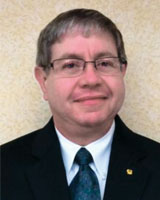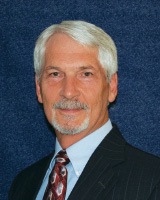“What a Long, Strange, Trip it’s been.”
 In the words of one of my favorite bands, “What a Long, Strange, Trip it’s been.” Having been elected to serve as the 2014 president of the International Fluid Power Society (IFPS), I can pause and reflect on just how I arrived at this point. Never in my wildest dreams did I imagine this day when I first heard of the organization so many years ago. This is truly an honor, and I am humbled.
In the words of one of my favorite bands, “What a Long, Strange, Trip it’s been.” Having been elected to serve as the 2014 president of the International Fluid Power Society (IFPS), I can pause and reflect on just how I arrived at this point. Never in my wildest dreams did I imagine this day when I first heard of the organization so many years ago. This is truly an honor, and I am humbled.
There have been a lot of very smart people in this industry with whom I have had the pleasure of becoming acquainted with over the course of my career, and many of them have served a number of roles to help get me where I am today. Some of those roles were as mentors, teachers, peers, co-workers, and students. Yes, I have learned a great deal from my teaching experiences over the years, and I have had the privilege of knowing some of the legendary teachers in the industry, such as George Altland of Vickers. In fact, that is really what I want to focus my comments on—education in our industry.
I’m sure I am preaching to the choir when I say that education is extremely important in any professional field, but in some aspects, it is uniquely so in the fluid power industry because there is not a widely accepted and consistent set of standards that exist for educating students in the technologies of fluid power. Unlike ABET, which is the accreditation body for engineering and technology degree programs, there are no specific standards that are universally adopted and accepted to ensure that those working within the industry at various levels have consistent core knowledge and skill levels. The closest the fluid power industry has are the various certifications offered through the IFPS.
What is lacking is a consistent and agreed-upon set of teaching standards to ensure that everyone attains at least the same foundational levels of knowledge. A lot of different sources offer hydraulic training with a wide and varied level of instruction. There are programs that propose to teach basic hydraulics in as little as a day to well-structured associate degree programs lasting for two years. A disturbing trend over the past few years is that many of the individuals who say they are seeking knowledge aren’t as concerned about the quality of the instruction and the depth as they are about the length of time they have to lose from “work” and corresponding cost to obtain a “certificate.” As a result, those individuals who take the shortcuts don’t possess enough knowledge to perform optimally.
Because of this, I am a firm believer in IFPS certifications. They offer the best tool currently available to evaluate and substantiate an existing knowledge and skill set. It is a shame that companies within the industry don’t as a whole actively embrace and seek certification for their employees. Certification provides a mechanism of validating that those responsible for the operation, maintenance, and selection of fluid power components and systems have met at least some minimum established standard of knowledge. I encourage all professionals in the industry to take a positive step forward and attain certification at whatever level is appropriate for their job functions. This would go a long way to help improve safety, reduce energy waste, enhance productivity, and promote the professionalism of those within our industry.
By Tom Blansett, CFPAI, CFPS, CFPIHT, CFPCC, Manager of Hydraulics Training Services at Eaton Corp. and 2014 IFPS President







